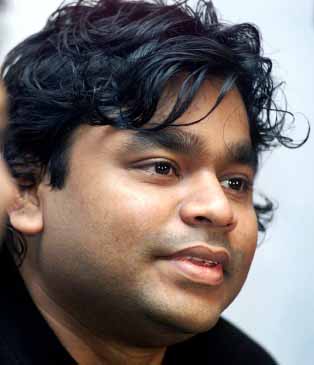Tuesday, August 19, 2008
After MSV the creator and Ilayaraja the pioneer came Rahman the innovator. The 1990s belonged to him. Rahman emerged at a time when technology was a given, and was creating global access to musical sounds from anywhere to anywhere. He was moulded by the age of jingles and music videos, downloads and virtuality.
Rahman is the innovator of what may be described as `Studio music'. It is often critiqued that while Ilayaraja controls the machine, it is the machine that controls Rahman! Harsh as this criticism might be, Rahman's music is the outcome of separately and distinctively worked out multi-track musical phrases and sounds that are subsequently mixed and patched together as one layered musical piece. The lyric is often fitted in.
In contrast to MSV and Ilayaraja's virtuosity, Rahman's music reflects his effort to synergise his musical vision with the possibilities of technology and musical arrangement. His is studio music that does not easily accommodate a sense of the `live'. One is often amused by Rahman's stage shows where the technical sound is cleverly managed, but the singers struggle to cope with their breathless songs simply because the songs were never meant to be sung live. They are musical phrases pieced together for a cinema trend that itself is predominantly cut-and-paste.
What makes Rahman the numero uno of Indian film music? Despite contemporaries like Anu Malik, what has made Rahman the first among equals?
It is clearly a combination of his audio and visual appeal. His musical arrangement is technically excellent and justifies his musical vision. He has the special talent to enhance the digital ambience to produce sound with a three-dimensional feel. He has the ability to evoke energy and mood through a song, and create touching moments through sound. He is intuitive in picking on the right inspiration for the right musical moment, say, Arabic for Hamma Hamma ("Bombay"), Indian raga-pop for Que Sera Sera ("Pukar") or Turkish for Maya Maya ("Guru"). And even if he is not the first to pick on the right inspiration, he will ensure some kind of a `first' — a new voice, a new instrument or just a new turn of phrase. And he is the best at wrapping and delivering sound so that a nation swings to it.



0 comments:
Post a Comment